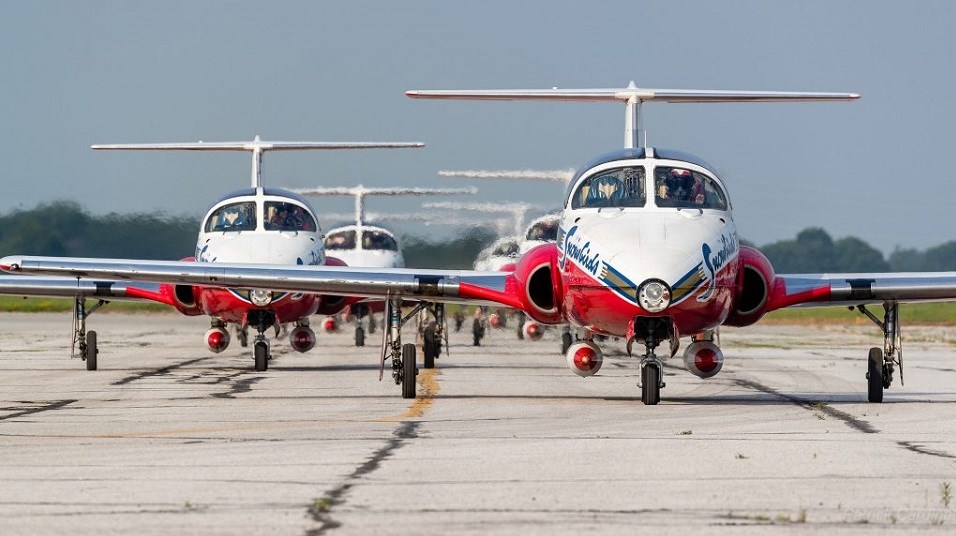A Snowbirds plane has been grounded after it experienced damage while taking off from an airport in British Columbia before the start of an airshow.
The pilot escaped injury and managed to land the jet in northern B.C. on Aug. 2. The Royal Canadian Air Force (RCAF) later tweeted about the incident and said it would investigate what occurred in Fort St. John, B.C.
“The RCAF is aware of an incident at the Fort St John, B.C. Airport today involving a CT-114 Tutor aircraft of 431 (Air Demonstration) Squadron on takeoff. The aircraft was able to land on the airfield but suffered some damage to the aircraft in the process,” the organization said.
“The sole occupant (pilot) did not sustain physical injuries and is being assessed by medical personnel. This incident is the subject of an RCAF flight safety investigation,” it added. “It is too early to say what impact this incident may have on future performances by the Snowbirds.”
The Department of National Defence announced on Aug. 3 that it would temporarily suspend the Snowbirds from flying their CT-114 Tutor airplane as the RCAF awaited more information from flight safety investigators.
The department had no firm timeline on how long the planes would be sidelined, but would have more information after the inspection was completed.
The air demonstration team was supposed to appear on Aug. 3 in Penticton, B.C., but that appearance was cancelled. It was also unlikely that the team would participate in an airshow in Abbotsford during the Aug. 5-7 weekend.
The squadron flies CT-114 Tutor planes, which the RCAF grounded in late June briefly as it dealt with a technical issue in a device that sets the timing for deploying a parachute during an ejection.
In May 2020, a jet collided with a bird shortly after takeoff, causing the engine to stall and leading to a crash that killed Capt. Jennifer Casey, a public affairs officer.
The RCAF placed the team on an operational pause for the summer after the crash, which came less than a year after another Snowbirds jet crashed in rural Georgia because of a fuel delivery system failure.
A report into the May 2020 crash in Kamloops, B.C., found that the pilot and passenger’s ejection sequences were “outside the ejection envelope,” while the plane was flying so low that their parachutes didn’t have time to deploy properly. Pilot Capt. Richard MacDougall suffered serious injuries, while Casey died at the scene.
The pilot in the Georgia crash ejected safely and had only minor injuries, though the pilot reported “anomalies” with the ejection sequence and parachute opening, according to a flight safety investigation. The plane was destroyed.
The investigation report said all life-support equipment was inspected because of the incident and recommended an inspection of the entire fleet’s engines.
The Tutor jets are nearly 60 years old and are expected to be used by the Snowbirds until 2030, although there have been calls for their replacement over the last several years.
The Canadian Forces is currently modernizing the Tutor aircraft, as the federal government committed $30 million last year to ensure the planes continued flying for the next decade. However, experts say a complete replacement of the Snowbirds planes could cost up to $1.5 billion.
With files from The Canadian Press and Ottawa Citizen.


.png;w=120;h=80;mode=crop)

